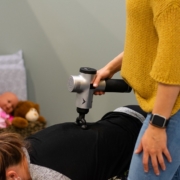Preventative Healthcare
Another week, another blog from your Corrective Chiropractic family! Who else looks forward to our small talks? As always, we are so excited to educate and empower you to live a life based on vitalism AKA preventative healthcare.
Preventative Healthcare
Today we are talking all about preventative healthcare. Why? Well, we often overlook the importance of preventative healthcare. If you have not already read our most recent blog, “Why Quick Fixes Aren’t The Answer,” we encourage you to go read that one first. We talk about how our “quick-fix” society tends to spill over into the way we approach our health.
For us, prevention means reducing the chances of problems arising in the first place. The World Health Organization defines health as “a state of complete physical, mental and social well-being and not merely the absence of disease or infirmity.” You see, it is not always about the absence of disease, but rather learning how to take preventative actions. Rather than waiting until we are unwell and require expensive treatment, Corrective Chiropractic focuses on preventative healthcare and keeping our patients well from the very start.
Prevention Over Pain
When it comes to our physical bodies, our aim revolves around prevention instead of pain. A lot of people tend to measure their health by their level of pain. While pain is a warning that something in your body is not functioning correctly or healing properly… it is not a good indicator of whether or not you are healthy. Because of the close relationship to your nervous system, your spine plays a huge role in your health. Pain is usually a late finding of long-term spinal dysfunction. Luckily, it is also usually the first thing to go away again. However, that doesn’t mean that when it does your spine is functioning perfectly again.
Nervous System Function on Preventative Healthcare
As Chiropractors, our aim is to ensure that your spine and nervous system are functioning at optimal levels. As a result of better nervous system functioning, pain and other symptoms often go away. With that being said, it’s still good to have your spine checked regularly even if you do not have pain. Think about it! Your body is constantly changing. It is constantly adapting to what you do in your day to day. Sitting down, bending, lifting, falling, and accidents are all examples of daily stressors that can cause spinal problems over time.
Diagnostic Testing
Here in our office, we do a lot of diagnostic testing… which includes digital x-rays, muscle scans, thermal nerve scans, digital posture analysis, and range of motion assessments. The reason why we do all of this diagnostic testing is because we want to see what’s going on with you and your spine. Your findings will act as a window into your health. We love the saying, “To see is to know.” If you, yourself, don’t even know what your spine looks like or what kind of shape it is in… you might not ever do anything to correct it. Are you tracking with us? Preventative healthcare encourages us to do things for our health before we are in pain or before it’s too late. Corrective Chiropractic care is just the place to start for true health and healing! So, what are you waiting for?



